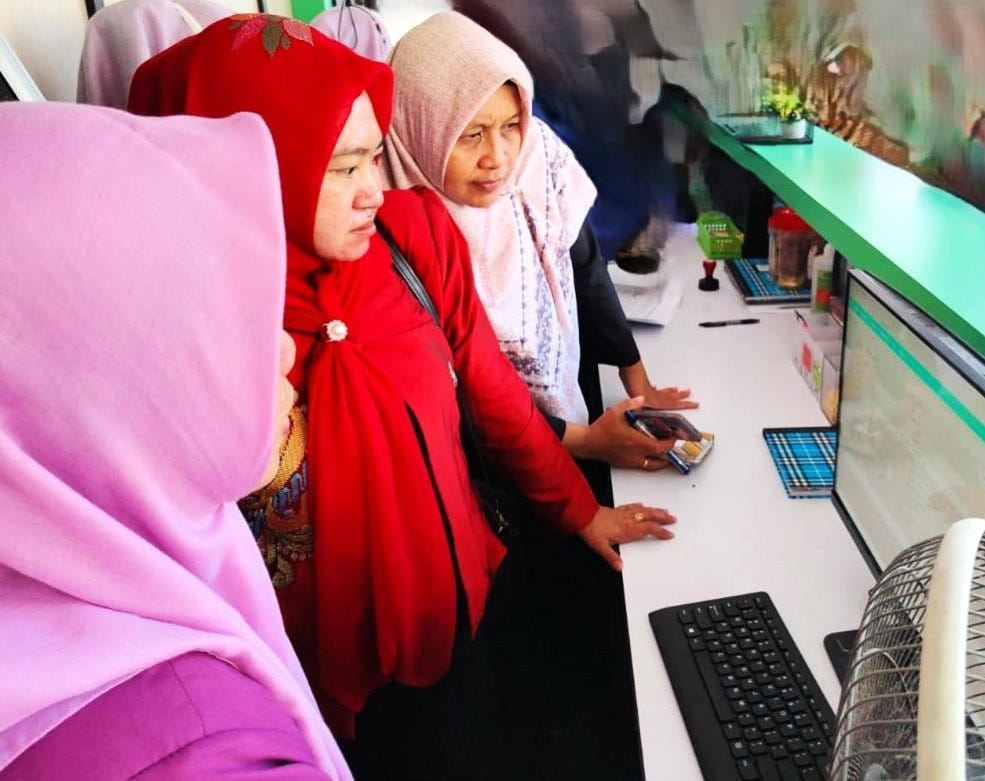Working in rural healthcare in Indonesia presents unique hurdles. Long journeys to remote community health centers (Puskesmas), like those in Gorontalo Regency, are filled with unforeseen challenges. This article delves into the realities of delivering healthcare in these settings, highlighting disease management, immunization, and the complexities of a fragmented health system.
Through the experiences of a healthcare worker, we explore the common diseases impacting rural communities, the importance of robust surveillance, and the crucial role of dedicated healthcare professionals. Integrating health services and streamlining reporting mechanisms are vital for improving public health outcomes in Indonesia.
Join us as we uncover the realities of rural healthcare, from the prevalence of diseases like hypertension and mumps to the need for streamlined health systems, emphasizing the dedication required to serve remote communities.
The Journey to a Remote Puskesmas
The journey to a remote Puskesmas can be an ordeal in itself. A 78-kilometer drive can take 2.5 hours, filled with unpredictable road conditions and logistical challenges. This journey underscores the dedication required to serve these communities, where healthcare access is not always straightforward.
Upon arrival, the immediate task involves assessing the program’s implementation in various clusters. Monitoring health management in the adult and elderly cluster reveals prevalent diseases such as Hypertension, Diabetes Mellitus, and Arthritis. In one month, 605 people were screened, with tuberculosis and hypertension screenings being the most frequent.
These initial findings highlight the urgent need for targeted interventions and continuous monitoring to address the health concerns of the adult and elderly populations in these rural areas. The dedication of healthcare workers is crucial in managing these conditions and providing necessary care.
Focus on Mother and Child Health
The Mother and Child cluster presents a different set of challenges. Observing health checks on children and pregnant women emphasizes the importance of early detection and preventive care. One particular case involved a young boy named Raffa, engrossed in his phone during a health check, revealing a potential case of mumps.
This observation highlights the need for parental awareness and proactive health-seeking behavior. While 439 health screenings were conducted in a single month, the story of one child’s swollen cheeks illustrates the importance of individual attention and thorough examination.
The incident underscores the need for comprehensive health education and awareness programs. It also highlights the evolving challenges of engaging children in health matters, especially in the age of digital distractions. Healthcare providers must adapt their approaches to ensure effective communication and engagement with both children and their parents.
Understanding Mumps and Prevention
Mumps, a contagious disease caused by a viral infection, primarily affects the parotid glands, leading to swelling in the cheeks and jaw. It typically occurs in children, emphasizing the importance of parental attention to children’s health and immunization.
Immunization programs have significantly reduced the incidence of mumps in countries with good healthcare policies. In the United States, for example, there are approximately 1,000 cases each year. Mumps primarily affects children aged 5–10 years, with maternal antibodies providing protection in infants.
The rise in suspected mumps cases in Gorontalo Regency underscores the need for continued vigilance and effective surveillance systems. Parental awareness, immunization, and proactive health-seeking behaviors are vital in preventing the spread of this contagious disease.
Challenges in Health Recording and Reporting
Health recording and reporting systems, while comprehensive, are often fragmented across various applications like SITB for tuberculosis and SIHA for HIV/AIDS. This fragmentation poses challenges for healthcare workers and hinders efficient data analysis and decision-making.
Streamlining these systems into a unified platform would greatly improve efficiency and enhance public health outcomes. A single, integrated system would reduce administrative burdens, improve data accuracy, and facilitate better coordination among healthcare providers.
The integration of health services and streamlining of reporting mechanisms are crucial for enhancing public health outcomes in Indonesia. By addressing these challenges, healthcare workers can focus on providing quality care and improving the health of the communities they serve.
The Importance of Dedicated Healthcare Professionals
Experiences in rural healthcare underscore the importance of dedicated healthcare professionals, robust surveillance systems, and effective immunization programs in combating infectious diseases. The commitment of these professionals is essential in managing health challenges and improving community well-being.
Integrating health services and streamlining reporting mechanisms will further enhance public health outcomes in Indonesia. By supporting and empowering healthcare workers, Indonesia can build a stronger and more resilient healthcare system.
Ultimately, the success of rural healthcare depends on the dedication and resilience of healthcare workers who navigate challenging conditions to provide essential services. Their efforts are vital in ensuring the health and well-being of remote communities in Indonesia.
Conclusion: Strengthening Rural Healthcare in Indonesia
Navigating the challenges of rural health work in Indonesia requires a multifaceted approach. From addressing prevalent diseases like hypertension and mumps to streamlining health systems and empowering healthcare workers, there is a continuous need for improvement and innovation.
Key takeaways include the importance of robust surveillance systems, effective immunization programs, and integrated health services. By focusing on these areas, Indonesia can enhance public health outcomes and improve the well-being of its rural communities.
The dedication of healthcare professionals is paramount in overcoming the challenges of rural healthcare. By supporting their efforts and implementing strategic improvements, Indonesia can build a stronger and more resilient healthcare system that serves all its citizens, regardless of location.
